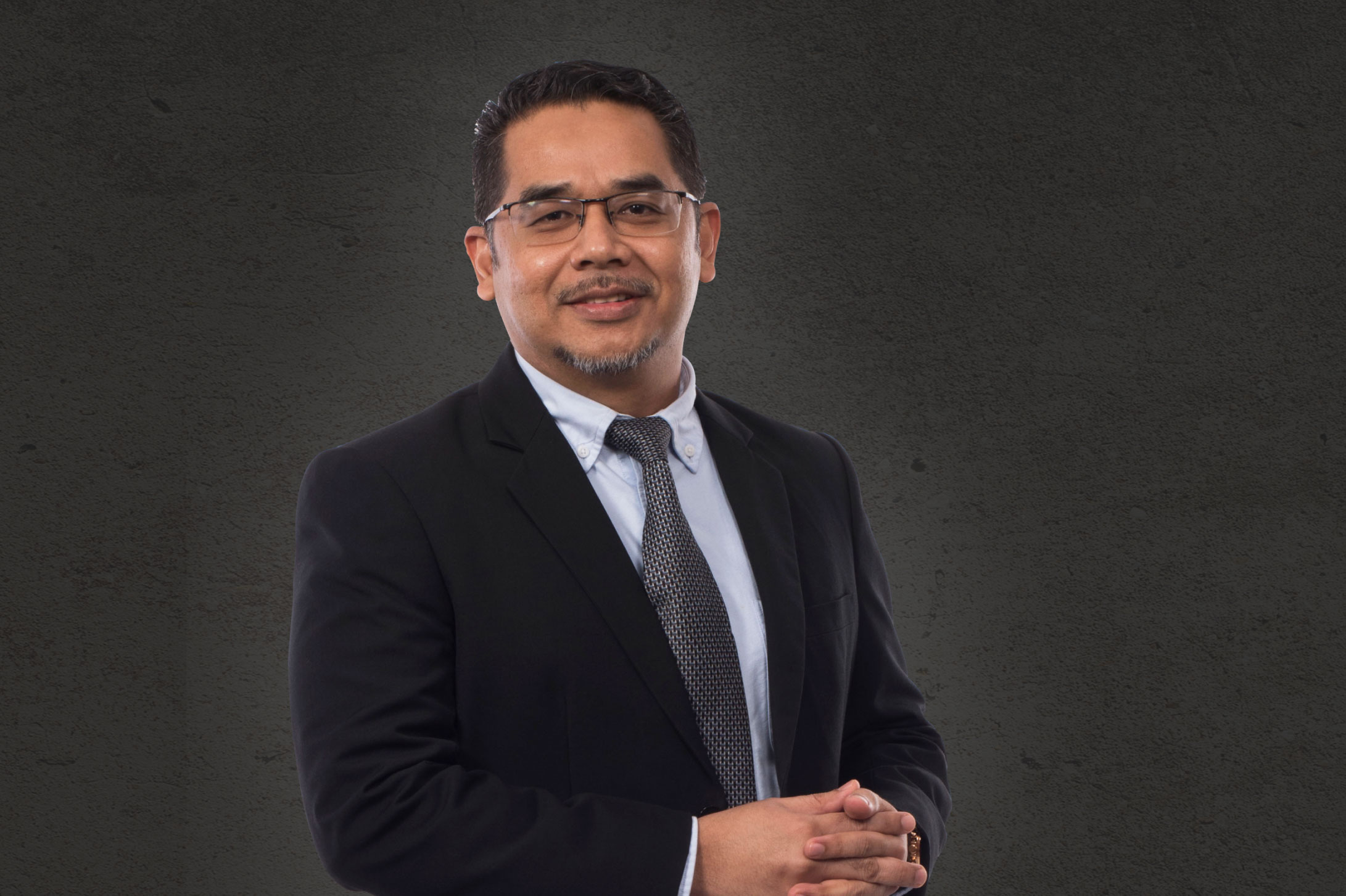An Interview With Rohaizak
Omar, Director of the Centre for
Learner Affairs
By Dr David Lim

Dr David Lim (DL): Thank you for talking to Inspired, Rohaizak Omar. To start off, in your capacity as Director of OUM’s Centre for Learner Affairs [CLA], please could you explain to our readers the core functions of the CLA? What kinds of “learner affairs” fall under the purview of the CLA? Which services are the most and the least in demand?
ROHAIZAK OMAR @ ABD RAHIM [RO]: The
CLA has two core functions. The first is to run
programmes and activities to support OUM learners.
Examples of programmes include the Learning Skills
Workshop and Assignment Writing Workshop, while
activities are add-ons that may include webinars
on such topics as stress management and time
management. These programmes and activities are
especially crucial. They give new learners a proper
head start, and they enable senior learners to pick
up the skills and competencies required for them to
complete their studies successfully.
The second core function of the CLA is to provide a
platform for OUM learners to send in their enquiries,
lodge complaints, and obtain assistance. All this
can be done conveniently on our online platform
called the e-Customer Relationship Management
[e-CRM]. All enquiries, complaints, and requests
are responded to and resolved typically within five
working days on average. Often, they are resolved
quicker. Other services offered under the CLA’s
second core function include academic advising,
counselling services, and miscellaneous services such
as providing document support to learners for EPF
withdrawals and PTPTN applications.
Coming back to the e-CRM, I should say it is especially
popular with OUM learners. The CLA receives around
35,000 e-CRM tickets annually. The number of cases
requiring academic advising or counselling services
given each year is relatively small. On average we get
about 200 cases per year. Understandably, the number
has been increasing since the start of the pandemic.
Based on our studies and learner feedback, the first three semesters are the most crucial for new learners. If these new learners are able to adjust well in the first three semesters, then there’s a higher probability of them completing their studies successfully.
DL: Which of the two groups - current OUM learners and OUM alumni - gets the lion’s share of focus from the CLA? What approaches are taken to service these two groups? And how would you describe and differentiate the core needs of each?
RO: We focus more on existing learners, especially
the new ones. Based on our studies and learner
feedback, the first three semesters are the most
crucial for new learners. If these new learners are
able to adjust well in the first three semesters, then
there’s a higher probability of them completing their
studies successfully. For this reason, the CLA, with
the cooperation of the Learning Centres, prioritises
efforts to support new learners by routinely checking
in on them to see how they’re progressing. We also
assist them to learn and apply adjusting and coping
strategies via workshops and sharing sessions.
OUM alumni, for obvious reasons, do not require the
same kind of support as our existing learners. But
we are in constant communication with them. The
University produces Contact, the alumni’s quarterly
e-magazine, by way of keeping them updated on the
latest developments related to their alma mater. Some
alumni are actively engaged in activities organised by
the respective Learning Centres across the country
where they volunteer as committee members. These
activities usually involve learners, alumni, OUM staff,
and the public.
DL: One of the key functions of the CLA is to provide counselling services to OUM learners. What is the level of demand for this service? And what are the typical and not-so-typical issues brought up by learners during their counselling sessions?
RO: The demand for counselling services is not as high as for the other CLA services. Most OUM learners are adults. They are self-confident mature learners who know how they learn best and what their strengths and weaknesses are. Most of those who seek counselling support are concerned about their academic performance or personal issues. The COVID-19 pandemic has clearly affected some of our learners, as may be inferred from a slight increase in the demand for counselling.
DL: Is the CLA working on any special projects at the moment? What future plans are in store?
RO: We are working with several units within OUM to
develop Virtual Orientation. It will be a starting point for
new learners to get initial information for their studies.
This digital orientation will provide an overview of the
journey they will embark on. We hope that, by having
this, learners will obtain a better understanding and a
proper head start.
For reasons of physical distancing due to the
pandemic, we are proposing the creation of additional
platforms for learners to get in touch with the University
to get assistance on study matters. Aside from the
e-CRM and email, we plan to introduce a synchronous
communication channel in the form of chatbot. This
will help learners get almost instantaneous response to
their queries.
We are also planning to increase the number of
activities to equip learners with the required knowledge
and skills, especially on how to manage time, finances
and stress. We also plan to introduce sessions to
enhance their digital literacy skills.
DL: OUM learners would no doubt look forward to these new initiatives. Thank you for talking to us, and all the best with the CLA.
An Interview With Professor Datuk Dr Mohd Tajudin Md Ninggal, Cluster of Education and Social Sciences
An Interview With Rohaizak Omar, Director of the Centre for Learner Affairs
By AP Dr Nantha Kumar Subramaniam, Head of the Centre for Learning Technology)
my_philosophy profiles OUM academics, facilitators, tutors, and subject-matter experts, as well as the personal educational philosophy that drives each of them